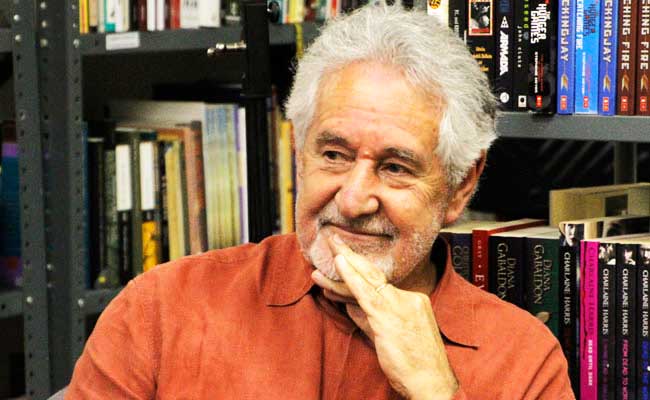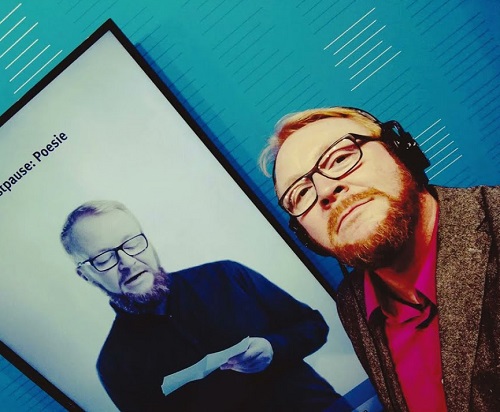De Zuid-Afrikaanse schrijver en dichter Breyten Breytenbach werd geboren op 16 september 1936 in Bonnievale. Zie ook alle tags voor Breyten Breytenbach op dit blog.
Uit: Intimate Stranger
“If we want to know what it felt like to be alive at any given moment in the long odyssey of the race, it is to poetry we must turn.” (Stanley Kunitz)
For when you hold a poem to your ear you hear the deep-sound, the movements we are part of, conveying not so much a literal meaning as an existential sense. It constitutes the spinal chord of remembering. And it reminds us that remembering is movement.
Yehuda Amichai once claimed that poetry was the last art form meant for the single human voice to communicate in a totally free fashion across boundaries of tongue and of time. Nothing could be more personal and nothing could be more selfless. It may be described as a Way of Telling (off) the Self. He might as well have added that it is also the first form, the most ancient chant of daybreak, fragile and indestructible. It conveys no power (except the non-power of freedom and free-fall); it normally doesn’t give access to privilege or to status. Alles van waarde is weerloos, the Dutch poet, Lucebert, wrote. “Everything of value is defenseless.” And the defenseless should be held cupped in the heart.
Over the ages contexts fade to a palimpsest, references become interpreted to an utter corruption of the original intention, the religion within which the poem lived like a fish in its ocean or bathtub of unsolicited understanding will have disappeared, the music to which it was set no longer exists -and yet this thing, this harmless but explosive mining metaphor and tool tracing the texture of living, this frail bark-the poem-comes to us down the ages in an instantly recognizable shape. As drunken boat. I am the beloved addressed by Li Bai in his Middle Kingdom lament all of these many centuries ago; the deep-sound comes to me through the mutation of a tongue of languages. The poem survives unadulterated because poetry partakes of the how it is to be alive, not the because or the therefore.
It is, always, a homage to all those alive at the time of reading it-written in the possible tense, not the past or the future imperfect, but the perpetual might-be: when it functions fully it will bring a tongue-exciting beauty and appear as effortless as water seeming in a well. And curiously, it is as always an epitaph, drenched and darkened by an inkling (and inking) of death as certain and as enlightening as dawn; it will be water smoothed by wind which came from nowhere, waiting to be drawn by Charon’s oar. And the voice will remain encapsulated in its form the way wind is born from nothing. The poem is crypt, or just a hollow in the ground, where the swaddled remains of rot-darkening flesh has long since perished but where the voice is kept alive. The poem is the phone booth of the ancestors.”

De Duitse dichter en schrijver Crauss werd geboren in Siegen op 19 september 1971. Zie ook alle tags voor Crauss op dit blog.
I
Opheliaten
ontzagwekkend water: de ouden staan
klaar op het corroderende doek. Vernis;
vedute, een dam opheliaanse pezen.
natuur en vermoeidheid, sproeikraag
aan gerimpelde halzen; het plezier in schoonheid.
verdrinken. het STRANDEN zal bron zijn.
II
de rivier is zwijgzaam. geen steen,
geen ijzig gorgelen; de meisjes
sterven ergens anders, hier rusten ze. enkel:
is deze TRANCE niet bedrieglijk? wij hebben
ervaren, water kan meer. en eenzaam
reeds wordt het wachten voor de knapen.
open breken de wegen en scheuren. daar!
Vertaald door Frans Roumen

Zie voor de schrijvers van de 16e september ook mijn blog van 16 september 2020 en eveneens mijn blog van 16 september 2019 en ook mijn blog van 16 september 2018.
